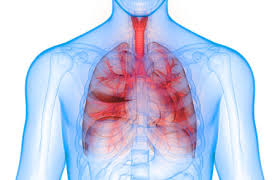What is COPD ?
Chronic obstructive pulmonary disease (COPD) is a chronic lung disease that is progressive. While unfortunately it is not curable, it can be effectively self-managed. The most common lung diseases are emphysema and chronic bronchitis. The majority of people living with COPD have both of these lung diseases.
COPD causes problems with your breathing, and in turn reduced heart function, problems with skeletal muscles, and lower levels of fitness and health.

What are the early signs and symptoms of COPD?
Very early symptoms of COPD can be mild and you may think you have a common cold or cough. Some signs would be:
- Breathlessness after exertion
- Recurrent cough
- Feeling the need to clear your throat often
- Wheezing
- Fatigue
- Increased susceptibility to chest infections
- Chest tightness
- Chronic cough
- Feeling the need to clear mucus from your lungs regularly
- Frequent colds or flu
- Lack of energy
In later stages of COPD, you may experience:
- Fatigue
- Swelling in your legs and feet
- Weight loss
What causes COPD?
Some of the causes and risk factors are:
- If you have smoked. Around 25% of smokers will develop COPD
- If you have had long term exposure to any lung irritants
- Genetics
- Severe air pollution in your area where you live
How is a COPD diagnosed?
Unfortunately, there is no single test for COPD. Diagnosis is made based on your symptoms, an examination, and some diagnostic testing. When you first visit your doctor they will ask you when you first started noticing the symptoms you are presenting with. They will also perform a breathing test known as spirometry. Some questions they will ask you include:
- Are you a smoker or an ex-smoker?
- Do you work in an environment with lung irritants?
- Are you exposed to second-hand smoke?
- Do you have a family history of COPD?
- Do you have asthma?
- Do you take any medications?
Your doctor will listen to your lungs with their stethoscope as you breathe in and out. Other tests that may be conducted include:
- Gas transfer and lung volume tests
- Blood tests
- Sputum analysis
- CT scan
- X-ray
What is the treatment for COPD?
While there is no cure for COPD, there are numerous treatments that will help ease your symptoms, prevent further complications, and slow down the progression of the disease. There are medications that can help relax the muscles of your airways and make breathing easier. They are usually taken through an inhaler or a nebuliser.
How can a physiotherapist help with COPD?
People with COPD often feel that exercise is the last thing they feel like doing. But your doctor will encourage some physical activity as it can really improve your shortness of breath, endurance, and other symptoms.
They may ask you to see a physiotherapist for pulmonary rehabilitation – a specially designed programme that helps you learn to better breathing techniques and improve your quality of life. The programme will teach you to retrain your breathing.
A physiotherapist can also help with the following:
- Performing specialised manual chest techniques called percussion and vibrations to help loosen your mucus
- General mobility and exercise programmes to help you with endurance
- Special breathing and coughing exercises to help improve your lung ventilation
- Helping you and your family understand your illness
- Showing you positioning techniques to help you clear your phlegm
- Suggesting some gadgets that could help you loosen your mucus
Exercise and any physical activity may prove to be a real challenge if you have COPD, but it’s actually one of the best possible things you can do to help yourself and your lungs.
